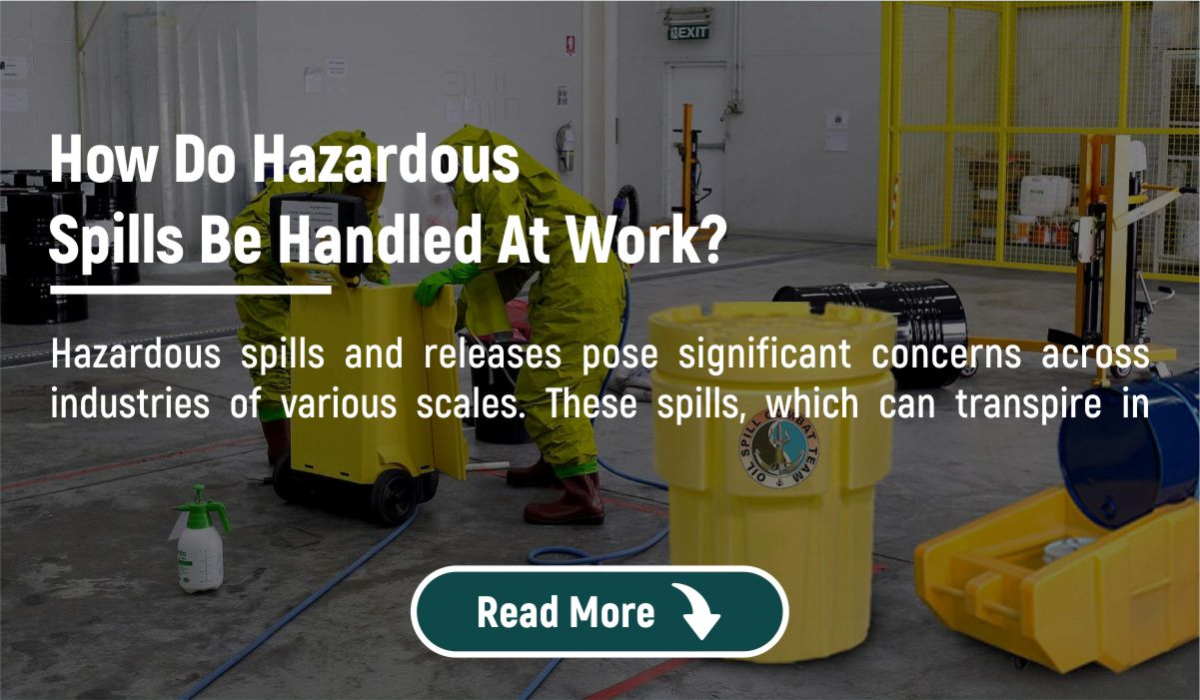
How do hazardous spills be handled at work?
Hazardous spills and releases pose significant concerns across industries of various scales. These spills, which can transpire in industrial settings, transportation hubs, food processing facilities, or any workplace, entail the release of substances capable of causing harm to individuals or the environment. Prompt action is imperative to mitigate potential injuries and environmental degradation when such spills occur.
Effective control of hazardous spills necessitates a comprehensive plan tailored to the specific workplace and the types of hazardous fluids present. This plan should encompass provisions for spill cleanup, containment, response, and investigation.
Several notable cases underscore the catastrophic consequences of hazardous spills. For instance, the Deepwater Horizon oil spill in 2010 and the chemical factory explosion in Dahej, Gujarat, India, in 2020 exemplify the far-reaching impacts of such incidents, affecting multiple industries and causing loss of life and extensive damage.
Various factors can precipitate hazardous spills, including improper storage, mishandling, and accidental occurrences. These spills pose grave risks to both the environment and human health, necessitating vigilant precautions and response measures.
The occurrence and severity of hazardous spills hinge upon factors such as workplace conditions, the nature of chemicals involved, and prevailing weather conditions. Spills resulting from flooding are particularly perilous, as they can contaminate water supplies with pollutants, heavy metals, and bacteria.
Immediate responses to hazardous spills are critical to mitigate their devastating effects. Implementing effective spill prevention plans, conducting regular inspections, and providing ongoing training to employees are essential measures to minimize the likelihood and impact of hazardous spills.
Hazardous spill response training equips individuals with the knowledge and skills necessary to respond to such incidents safely and effectively. Through Hazardous Spill Response (HSR) programs, emergency personnel gain proficiency in managing spills, safeguarding individuals exposed to emergencies, and mitigating environmental damage.
Safeel recent initiative to train delegates from a multinational steel and cement manufacturing company underscores the importance of preparedness in handling hazardous spills. By implementing preventive measures, training employees, and fostering a culture of safety, workplaces can mitigate the risks associated with hazardous spills and ensure a safe and productive environment.
